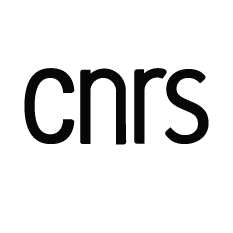Catalysis and Molecular Chemistry Department
Teams
Department leader foreword

The Catalysis and Molecular Chemistry (CCM) Department was managed for 8 years by Francine Agbossou, Director of Research at CNRS. I took over the responsibility in September 2016. Recently reorganized, the CCM Department now includes 4 research teams, CASU, CASECO, CÏSCO and MOCAH, representing a group of 35 teacher-researchers, 4 CNRS researchers, 22 PhD students and Postdoctoral fellows and an emeritus, Professor André Mortreux, whose career and outstanding contribution to organometallic catalysis have recently been awarded by the Pierre Süe Award of SCF.
The research activities of the CCM Department are based on a foundation of skills that has been internationally recognized for many years in organic synthesis, homogeneous catalysis, organometallic chemistry and supramolecular chemistry. Today, our research mainly focuses on polymerization catalysis, hybrid catalysis, colloidal physicochemistry or formulation. Through the varied and complementary expertise of its researchers, the strength of the CCM Department is to be able to approach and consider research projects that go from the molecule to the application, while integrating the principles of green chemistry. Indeed, the research carried out within the CCM Department aim at developing new catalyst synthesis methodologies, eco-designing new functional compounds, molecular and macromolecular, and developing new tools and methods necessary to understand mechanisms and modes of action. Researchers of the CCM Department are involved in numerous academic and industrial collaborative projects at the regional, national, European and international levels.
Presentation
The objective of the CCM department is to develop catalysis concepts for cleaner, more selective and energy-efficient reactions, the aim being the eco-design of functional, high added-value molecules and polymer materials, through the activation of inexpensive raw materials. The research efforts that we place on these directions perfectly fit with the current priorities of green chemistry. The immobilization and the grafting on supports are also studied for the recovery and the recycling of the catalysts which are important stages of potential valorizations. The main topics are organometallic catalysis for fine chemistry, supramolecular catalysis in multiphase media and polymerization catalysis. Advances made upstream allow us to carry out projects with numerous industrial partners. Our expertise in organic, organometallic and supramolecular chemistry allows us to address all facets of homogeneous catalysis, with the design of molecular, supramolecular and grafted catalysts, their optimization, the understanding of their mode of action and their valorization.
Strategy
The strategy of the CCM department is part of the objective of developing eco-designed syntheses through catalysis. Our expertise in catalyst synthesis will be exploited to develop and optimize the coordination sphere of the active center, for applications in oxidation, hydrogenation, carbonylation and formation of C-C bonds, asymmetric if necessary. Research will focus on the use of organic and organometallic catalysts based on abundant metals such as iron, copper and nickel, in order to palliate the rarefaction of noble metals, and on low toxicity metals such as rare earths, for which our skills in organometallic syntheses will be useful. The use of silica modified with organometallic catalysts for example will allow the development of novel applications in cosmetics with the transformation of biosourced fatty oils notably. To take into account a large pool of raw materials, the recovery of biosourced polyols (e.g. glycerol, sorbitol, erythritol, etc.) and carbon dioxide are also future strategic actions for which our expertise will be valorized. In addition, original and differentiating actions will be reinforced on catalytic systems involving the use of cyclodextrins, which make it possible to improve the transfer of material in multiphase systems, to immobilize homogeneous or heterogeneous catalysts, or to structure a medium by controlling the dispersion of the active phases in catalytic solids. In the field of polymerization, the conceptual approaches that have been initiated will be developed, in particular coordinative polymerization / copolymerization by chain transfer and Chain Shuttling. Recently initiated research on the use of biobased monomers for the preparation of novel polymer materials will also be continued.
Keywords
Eco-design, biosourced, fine chemistry, homogeneous catalysis, organometallic catalysis, polymerization catalysis, supramolecular chemistry, hydrogenation, oxidation, organized reaction media, physicochemistry, surfactants, green solvents, formulation




![[Translate to English:] Logo CÏSCO (Coilloïdes Catalyse Oxydation)](/fileadmin/_processed_/6/5/csm_CISCOfr100_ca1e9786bb.png)